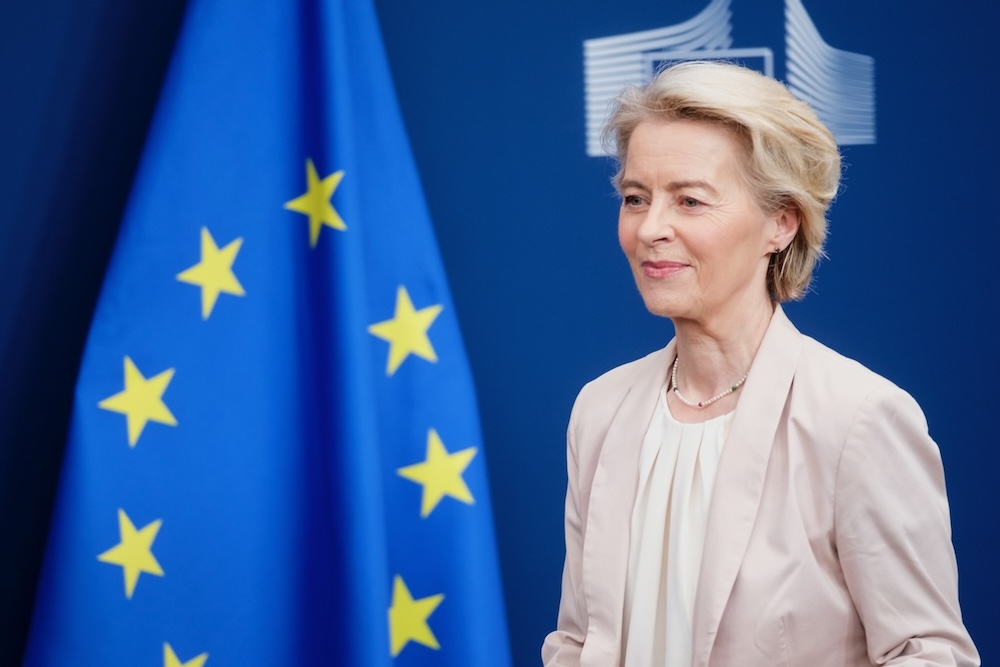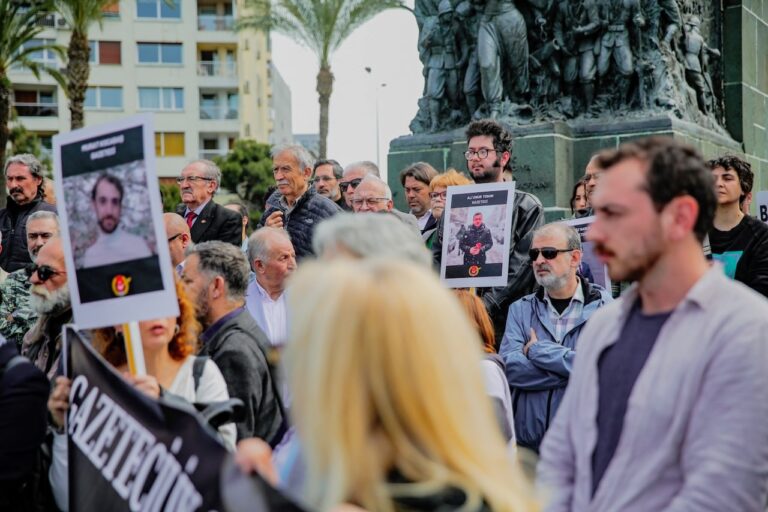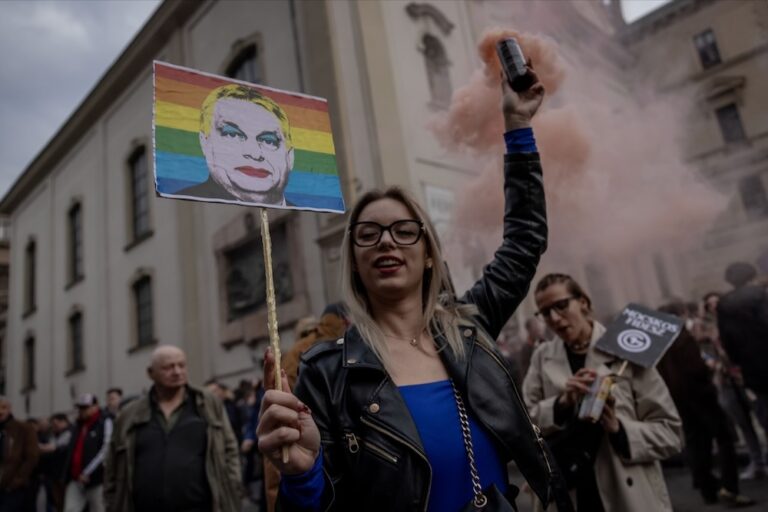Fifty rights groups urge the European Commission to adopt an ambitious approach while preparing its draft proposal for the European Democracy Shield.
This statement was originally published on cpj.org on 25 March 2025.
The Committee to Protect Journalists, along with 49 other organizations, sent a letter on March 25 urging the European Commission to adopt an ambitious approach while preparing its draft proposal for the European Democracy Shield.
In 2024, the European Commission announced the European Democracy Shield, an EU-led initiative designed to reinforce democracy by addressing foreign interference, disinformation, and other threats to democratic processes.
The letter provided recommendations for strengthening the media, noting that: “a robust media sector working in the public interest is one of the strongest guarantees against the harmful effects of disinformation and polarisation.”
Read the full letter. An excerpt of the letter follows.
Joint Input for the European Democracy Shield
March 2025
As organisations working to support and develop democracy, we welcome the European Commission’s initiative to create a European Democracy Shield as a coordinated effort to support democracy in and around Europe. This initiative is particularly relevant in the current context of global democratic backsliding.
Given the Shield’s thematic focus on the information space, election integrity, and civic engagement, we see it as a natural successor to the European Democracy Action Plan (EDAP). EDAP saw the introduction of the European Media Freedom Act (EMFA), the Anti-SLAPP Directive, a revamped Code of Practice on Disinformation, and the Regulation on the Transparency and Targeting of Political Advertising (TTPA), among others, which are all vital steps towards creating healthier European democracies. Complementing the EDAP, legislation was passed such as the Digital Services Act (DSA), the Digital Markets Act (DMA), and the AI Act that regulate technological advancements in line with democratic standards.
Taking into consideration the Commission’s core priorities on democracy, including the rule of law and fundamental rights, the Shield should use this legislative basis with increased determination and ambition, to achieve concrete improvements over the next mandate.
Priority areas
In order to ensure that the European Democracy Shield effectively responds to the challenges faced by democracy in Europe, it is vital that it addresses the following priorities:
1. The legislation to underpin the protection of democracy in Europe exists. The European Democracy Shield should enable the swift and effective implementation and enforcement of existing legislation in this domain – such as the Digital Services Act (DSA), Digital Markets Act (DMA) the Regulation on the Targeting and Transparency of Political Advertising (TTPA), the European Media Freedom Act (EMFA) and the AI Act.
● The Commission plays a vital role in enforcing the existing rules and elaborating on legislation through delegated acts, guidelines and Codes of Conduct. Both political will and adequate resourcing of the EU institutions and other democracy stakeholders is crucial for this.
● At a time of significant geopolitical uncertainty, it is of ever greater importance for the EU to stand by the standards it has set. Weakening them at this stage will embolden leaders with authoritarian tendencies and only increase the threats posed to European democracies in the short-run as well as in the long-run.
● The Commission should promote safe harbour protections for researchers examining online platforms and AI, in line with the above legislation, to prevent intimidation and legal risks from having a restrictive effect on research that is in the public interest. This can be done by developing Guidelines on non-prosecution – to be spearheaded by the Commission’s DSA Unit or the AI office – and an exemption from civil liability similar to the protection of software vulnerability reporting.
● The Democracy Shield should be coordinated with other work in the Rule of Law dialogue, especially around checks and balances as provided by independent authorities, rule of law institutions, and parliamentary strengthening. Areas for specific coordination might include further promotion of political finance rules on campaigns and advertising, as well as campaign data.
2. Combatting disinformation is a necessary and inevitable component of the democracy support agenda. While the focus has often been on Foreign Information Manipulation and Interference (FIMI), equal importance should be given to countering domestic disinformation, which accounts for a significant portion of overall disinformation operations. The fight against disinformation however, must not come at the expense of free and independent journalism.
Given the vast proliferation of disinformation, structural solutions should be favoured over reactive ones. Ad hoc efforts are often too little, too late, and cannot address the magnitude of the problem.
● Disinformation should be demonetised. The business model of online platforms and online advertising currently incentivises the spread of disinformation given its propensity to go viral and therefore generate revenue. This should be countered in advertising design to avoid the abuse of such models by specific platforms or opinion- and decision-makers. For-profit platform providers, however, will not take such measures by themselves, but rather adapt their internal policies according to the current political climate and profit considerations, such as in the case of Meta’s changes to their content moderation policies.
● Fact-checking is important, but checking every piece of information available online is impossible. It must therefore be accompanied by integrated media literacy programmes so that people are taught how to critically assess information even when not fact-checked. The Commission should therefore support Member States in integrating flexible media literacy programmes into their education systems, which can adapt along with rapid changes in the information environment. While youth should be a key focus, media education must also be promoted as a lifelong learning process, ensuring that all generations develop the necessary critical thinking skills to resist manipulation in an ever-evolving information landscape – this can be done in libraries, senior citizen centres, or in professional settings.
[ … ]
Signatories
Europe
1. Alliance4Europe
2. ARTICLE 19
3. Bulgarian Institute for Legal Initiatives Foundation (BILI)
4. Center for Countering Digital Hate (CCDH)
5. Centre for Public Policy Providus (Latvia)
6. CFI Développement Médias (CFI)
7. Civil Liberties Union for Europe
8. Committee to Protect Journalists (CPJ)
9. Croatian Platform for International Citizen Solidarity (CROSOL) (Croatia)
10. Democracy Reporting International (DRI)
11. Democratic Society
12. Demos Helsinki
13. DW Akademie
14. Europe Jacques Delors
15. European Association for Local Democracy (ALDA)
16. European Centre for Press and Media Freedoms (ECPMF)
17. European Federation of Journalists (EFJ)
18. European Partnership for Democracy (EPD)
19. Fondazione Openpolis (Italy)
20. Free Press Unlimited (FPU)
21. Fund Safe Ukraine 2030
22. The Good Lobby
23. Human Rights Monitoring Institute (Lithuania)
24. ILGA-Europe (European region of the International Lesbian, Gay, Bisexual, Trans and
Intersex Association)
25. ImplicarePlus.org (Romania)
26. Institute for Strategic Dialogue (ISD)
27. International Federation for Human Rights (FIDH)
28. International Press Institute (IPI)
29. International IDEA
30. Kofi Annan Foundation
31. Lie Detectors (LD)
32. Make.org
33. Netherlands Helsinki Committee (NHC)
34. Netherlands Institute for Multiparty Democracy (NIMD)
35.Network of Estonian Non-Profit Organisations (NENO) (Estonia)
36. Open Government Partnership
37. Open Society Foundation Bratislava (Slovakia)
38.Open Source Politics
39. People in Need
40. People Powered (PP)
41. Political Parties of Finland for Democracy – Demo Finland
42. TRAC FM International (Netherlands)
43. Transparency International EU
44.Vouliwatch (Greece)
Global
45. African Digital Democracy Observatory (ADDO)
46. African Fact-Checking Alliance (AFCA)
47. Code for Africa (CfA)
48.Fundacion B77
49. HuMENA for Human Rights and Civic Engagement
50. One More Percent



